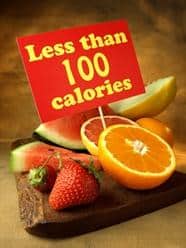Every woman is different in her height, body type, and weight, so it is important to remember that every woman’s caloric needs are going to be different. You are not going to take in the same amount of calories as your best friend and be able to maintain or lose weight. In order to find out how many calories a day you should be eating, you need to do a math equation.
Calorie Intake for Women
How Many Calories Do You Need?
Using a formula known as the Harris-Benedict principle, you need to figure out your basal metabolic rate (BMR).
When you do this formula you will figure out how many calories you need each day to maintain your current weight. If you want to lose weight you will either have to cut back on some of those calories or you will need to up your activity level to burn more calories. Your basal metabolic rate is the amount of energy your body needs to use in order to function properly.
You use around 60% of the calories you take in for basic functions of the body, like breathing. Remember your height, weight, sex, and age will all influence your basal metabolic rate.
How to Get Your Calorie Number
1) The first step is to do the following equation:
655 + (4.3 X your weight in pounds) + (4.7 X your height in inches) – (4.7 X your age in years). This will be your basal metabolic rate.
2) The second step is to do another equation to add in your activity into your daily calorie needs.
If you sit or are inactive for almost all of the day you want to take your BMR and multiply it by 20%.
If you do light activities throughout the day then take your BMR and multiply it by 30%.
If you exercise most days of the week then take your BMR and multiply it by 40%.
If you are very active every day then you want to multiply your BMR by 50%.
If you do hard labor or are doing athletic training then you need to multiply your BMR by 60%.
After you figure out the second number, you are going to add it to the number you got in the first equation. That is the number of calories you should consume on a daily basis to maintain your weight.
1 + 2 = Your Daily Calorie Needs to Maintain Your Weight
To lose weight – cut back your calories or do more to burn calories. If you reduce your calorie intake by 500 calories, you should lose about 1 pound a week. As you lose weight you can reassess your daily calorie needs.
For example:
A person weighing 175 pounds, at 67 inches tall, and 37 years old would use the following to figure out their calories:
(655+752.5+314.9-173.9=1548.5)
Next they would take 1548.5 and figure out their activity number.
If they were moderately active, the equation would be 1548.5*40%=619.4
They would then add 1548.5 and 619.4 together and that would give them their daily calorie needs of 2167.9
A Final Word About Managing Calories
When managing your calories, it's important to remember to do so in a healthy and sustainable way. It's unfortunately easy to become obsessed with counting calories, to the detriment of your own mental health. Eating disorders are not just for teenagers; people of any age, gender, and background can get one.
If you believe that you are beginning to develop or have developed an eating disorder, it's important to seek help sooner rather than later. The sooner you seek the help of a mental health professional, the sooner you can get yourself back to a healthy point. Know the signs of eating disorders.
Remember that losing weight is ultimately a lengthy journey, especially if you need to lose a lot of weight. It's easy to see the end results of someone who lost weight and feel like you're never going to get there. When you find yourself in these moments, remind yourself that the person you're looking at also had to go through a long and difficult journey to get to where they are now.
If you have any further questions or concerns about your diet or weight loss, contact your doctor or a nutritional specialist. They will be able to dive into your individual situation, to find the right diet and exercise plan for you. Plus, they can help you avoid costly mistakes and unnecessary risks.
